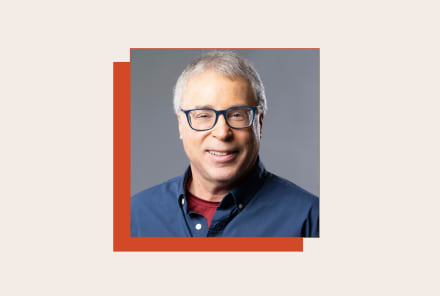Advertisement
Why You Should Eat Olives Every Day: A Doctor Explains

When I was a kid, olives were one of those foods I just didn't quite get. They were salty and had a pit in the middle—a bit of a nonstarter for a kid in the market for sweeter treats. Fast-forward a few decades (OK, more than a few), and now my eyes light up at the sight of olives. Why? Because they're a wonderfully tasty snack or mealtime ingredient that's also a good-for-you indulgence.
In fact, olives pack such a healthy punch that working more of them into your diet is one of those no-brainer health-boosters nobody should miss out on. With all the varieties there are to choose from—roughly 500 or so—there is an olive to suit virtually every taste.
So as a functional medicine doctor, I recommend digging in to these precious pitted and unpitted powerhouses, and enjoying the benefits they can bestow from head to toe. Here's why:
1. They are an anti-inflammatory antidote to modern ills.
Anything you can do to tamp down inflammation is a step in the right direction—and olives can help. Working them into your regular dietary repertoire will give your body more access to polyphenols, in particular, oleuropein, a chemical compound known for its powerful antioxidant, anti-atherogenic, anti-inflammatory, antifungal, and antimicrobial properties.
Better yet, those delicious polyphenols help cut oxidative stress in the brain and can help boost memory. In other words, olives are also a great way to feed your head.
2. They support your cardiovascular health.
Tucked inside each olive is fat—the healthy, monounsaturated kind, which helps boost good cholesterol and reduces the risk for hardening of the arteries. The monounsaturated fat in olives also contains oleic acid, which is linked to lower blood pressure and better cardiovascular health overall.
3. They're great for your eyes and skin.
Olives are rich in vitamin A, an antioxidant that's essential for protecting the cornea and maintaining eye health. It can help fend off age-related eye problems such as macular degeneration, cataracts, and glaucoma and, when it comes to skin, can help reduce wrinkles.
Olives also include vitamin E as well as the antioxidant compounds lutein and zeaxanthin, all of which offer additional eye- and skin-health support.
4. They can keep you trim.
Looking to reach a healthy weight? Olives can help here, too, thanks to those monounsaturated fats, which are linked to belly fat loss and better insulin sensitivity.
To help curb appetite in a healthy way, before sitting down to lunch or dinner, try snacking on a small serving of olives. The monounsaturated fatty acids (plus a bit of fiber) in the olives will help aid digestion and stimulate satiety hormones—so you'll feel fuller sooner.
5. They'll give you more energy.
Got glutathione? If you eat olives, you sure will, according to several studies that measured significant increases in glutathione levels in the blood after eating olives. Glutathione is essential to energy production, so getting enough of the stuff can be the difference between a vibrant, active life and one that's anything but.
In addition, olives, particularly black olives, deliver a nice dose of iron, which is important for energy production and immune system function—so dig in to keep levels high.
How to buy the best olives:
OK, so now it's buy time. You're at the market, staring at a wall of olives and not so sure where to start. Here are a few tips on what to look for:
Step outside the supermarket. Head to the local farmers market and look for small-batch, artisanal vendors to get the best, close-to-organic quality.
Opt for organic. If you're buying bottled olives, look for organic brands that have been "traditionally cured" in order to avoid the ones that have been cured with lye.
Skip the cans. Try to avoid buying canned olives from large-scale producers, which are more likely to be sprayed with pesticides during the growing process and then treated with harsh chemicals—namely lye, to speed curing—during processing.
Buy in bulk. Instead of canned versions, buy the fresher, high-turnover olives you'll usually find in bins at the market. Buying just the amount you need from the bins will also make it easier to taste-test and find the ones that appeal most to your taste buds.

For Dr. Frank Lipman, health is more than just the absence of disease: it is a total state of physical, mental, emotional, spiritual and social wellbeing. Dr. Lipman is a widely recognized trailblazer and leader in functional and integrative medicine, and he is a New York Times best-selling author of five books, How to Be Well, The New Health Rules, Young and Slim for Life, Revive and Total Renewal.
After his initial medical training in his native South Africa, Lipman spent 18 months working at clinics in the bush. He became familiar with the local traditional healers, called sangomas, which kindled his interest in non-Western healing modalities
In 1984, Lipman immigrated to the United States, where he became the chief medical resident at Lincoln Hospital in Bronx, NY. While there, he became fascinated by the hospital’s addiction clinic, which used acupuncture and Chinese medicine making him even more aware of the potential of implementing non-Western medicine to promote holistic wellbeing.
He began studying nutrition, acupuncture, Chinese medicine, herbal medicine, functional medicine, biofeedback, meditation, and yoga. Lipman founded the Eleven Eleven Wellness Center in 1992, where he combines the best of Western medicine and cutting edge nutritional science with age-old healing techniques from the East. As his patient, chef Seamus Mullen, told The New York Times, “If antibiotics are right, he’ll try it. If it’s an anti-inflammatory diet, he’ll do that. He’s looking at the body as a system rather than looking at isolated things.”
In addition to his practice, he is also an instructor in mbg's Functional Nutrition Program.
More from the author:
Functional Nutrition Training
Check out Functional Nutrition Coaching
A cutting-edge nutrition deep dive taught by 20+ top health & wellness experts
Learn moreMore from the author:
Functional Nutrition Training
Check out Functional Nutrition Coaching
A cutting-edge nutrition deep dive taught by 20+ top health & wellness experts
Learn more
For Dr. Frank Lipman, health is more than just the absence of disease: it is a total state of physical, mental, emotional, spiritual and social wellbeing. Dr. Lipman is a widely recognized trailblazer and leader in functional and integrative medicine, and he is a New York Times best-selling author of five books, How to Be Well, The New Health Rules, Young and Slim for Life, Revive and Total Renewal.
After his initial medical training in his native South Africa, Lipman spent 18 months working at clinics in the bush. He became familiar with the local traditional healers, called sangomas, which kindled his interest in non-Western healing modalities
In 1984, Lipman immigrated to the United States, where he became the chief medical resident at Lincoln Hospital in Bronx, NY. While there, he became fascinated by the hospital’s addiction clinic, which used acupuncture and Chinese medicine making him even more aware of the potential of implementing non-Western medicine to promote holistic wellbeing.
He began studying nutrition, acupuncture, Chinese medicine, herbal medicine, functional medicine, biofeedback, meditation, and yoga. Lipman founded the Eleven Eleven Wellness Center in 1992, where he combines the best of Western medicine and cutting edge nutritional science with age-old healing techniques from the East. As his patient, chef Seamus Mullen, told The New York Times, “If antibiotics are right, he’ll try it. If it’s an anti-inflammatory diet, he’ll do that. He’s looking at the body as a system rather than looking at isolated things.”
In addition to his practice, he is also an instructor in mbg's Functional Nutrition Program.
Watch Next
Enjoy some of our favorite clips from classes
Enjoy some of our favorite clips from classes
What Is Meditation?
Mindfulness/Spirituality | Light Watkins
Box Breathing
Mindfulness/Spirituality | Gwen Dittmar
What Breathwork Can Address
Mindfulness/Spirituality | Gwen Dittmar
The 8 Limbs of Yoga - What is Asana?
Yoga | Caley Alyssa
Two Standing Postures to Open Up Tight Hips
Yoga | Caley Alyssa
How Plants Can Optimize Athletic Performance
Nutrition | Rich Roll
What to Eat Before a Workout
Nutrition | Rich Roll
How Ayurveda Helps Us Navigate Modern Life
Nutrition | Sahara Rose
Messages About Love & Relationships
Love & Relationships | Esther Perel
Love Languages
Love & Relationships | Esther Perel

















